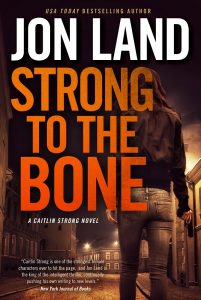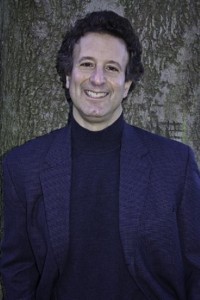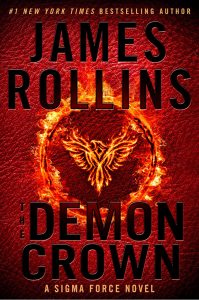Robert Crais is the award-winning author of twenty previous novels, sixteen of them featuring Elvis Cole and Joe Pike. Before turning to writing novels, he wrote scripts for various television series including Hill Street Blues, Cagney & Lacey, Miami Vice, Quincy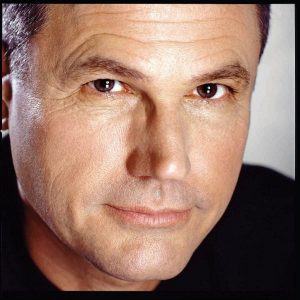 , Baretta, and L.A. Law. His novels have been translated into more than forty languages and are global bestsellers.
, Baretta, and L.A. Law. His novels have been translated into more than forty languages and are global bestsellers.
The Wanted features a worried mother, Devon Connor, who contacts P.I. Elvis Cole because she thinks her teenage son, Tyson, has been dealing drugs. Actually, Tyson, along with two friends, has burglarized more than a dozen homes in wealthy Los Angeles neighborhoods. But they’ve stolen the wrong thing from the wrong man who will stop at nothing to retrieve the purloined item. Two professional hitmen are on Tyson’s trail, murdering witnesses. Cole calls his longtime friend and partner, Joe Pike, to take steps to protect Tyson and his friends before more death is meted out.
“The Wanted” begins with a prologue written from the points of view of two hitmen, Harvey and Stemms. They recur throughout the novel and are almost likable characters. What about villains can make them interesting?
To be interesting, they need to be complex and not cardboard cutouts. They also have to be accessible. The reason I open the novel with them is that while they’re actually horrible people, as that first scene develops, the reader doesn’t yet know how horrible they truly are. They seem like just a couple of regular guys. They have their affectations, but they’re presented as people you might bump into on the street. 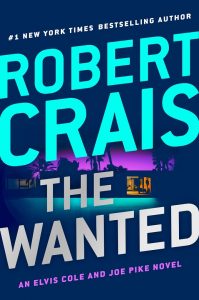 They’re friends; they relate well to each other; and little by little, I draw the reader in until there’s the revelation of just how hideous they are. It should be unsettling for the reader as the hooks gradually sink in, and the reader is compelled to read on to see what they’re going to do next.
They’re friends; they relate well to each other; and little by little, I draw the reader in until there’s the revelation of just how hideous they are. It should be unsettling for the reader as the hooks gradually sink in, and the reader is compelled to read on to see what they’re going to do next.
All writers, including me, are readers first. I was a voracious reader before I became a writer. I’m still a reader and love to be entertained. Hence, I’m my own first audience. So, when I wrote that scene, I was doing so to make it funny and entertaining, and then to make it intriguing and horrifying for me. If I’m entertained, hopefully the reader is entertained. If the reader finds Harvey and Stemms compelling, it’s because I find them compelling.
Throughout “The Wanted”, there are alternating points of view. What are the advantages of this kind of storytelling?
The advantage is that the reader gets to see the entire world of the story from multiple perspectives. When I started writing the Elvis Cole novels, I did so with the classic Raymond Chandler/Philip Marlow paradigm—the entire book is first-person point-of-view from that of Elvis Cole. While that was fine, and I enjoyed it, over time, I began to feel constrained by that technique. I felt it would be so much more interesting for me to show scenes from Joe Pike’s point-of-view or from that of the victim, or from the bad guy’s perspective. The different viewpoints are like colors on a painter’s palate, and the more colors I use, the more interesting and vivid the book will be. I’m a completely self-serving writer. I do these things because they appeal to me. It’s what I want to read.
The dialogue in “The Wanted” is crisp and realistic. Talk to us about a novel’s dialogue.
I wrote a lot for television. It was my good fortune to have worked with and for some of the most talented people on television at that time—actors like Jack Klugman, Tyne Daly and Sharon Gless; and producers and writers like Steven Bochco. Working with them, day-in-and-day-out, on such character-rich shows taught me how drama should unfold; and actors like Tyne Daly and Jack Klugman gave me an appreciation of how dark dialogue should sound. Those lessons became ingrained in me, and have infiltrated the books.
I usually don’t think about dialogue. It just happens in my head. It unfolds. Of course, I revise it many times and always speak it aloud to myself. I constantly read my work aloud, which sometimes draws odd looks when I’m writing in a Starbucks. [Laughter]. I find hearing it helps me make it more precise, and more real.
Which character in “The Wanted” was most challenging for you to write?
Probably, it was Elvis Cole because so much is at play in this novel. The books in the series are ultimately about Elvis’s search for himself. Yes, there’s a bad guy, a story, an unfolding mystery; but I realized a long time ago, that the detective’s primary job is to discover himself. As Elvis’s creator, it’s my job as well.
In The Wanted, Elvis has an obvious longing for a family. He finds himself becoming a father figure for a troubled teen-ager. He’s at a point in his life where he realizes he doesn’t have children of his own, something he would have really liked. Despite the murders and brutality in my novels, there’s a subtle context to many of the scenes. Elvis’s feelings about lacking a family, and how much finding this boy means to him, are ultimately the engine driving the story.
So, the novel is very much driven by Elvis’s character?
Yes, I think of myself as mainly a character writer. While reviewers have always spoken highly of my plots—which I want to roll along—all the stories derive from the protagonist’s character. Above and beyond the excitement and energy of the plot, the moments that bring a tear to the eye are the primary motivating factors for me.
Is there anything about your writing process that might surprise our readers?
While the books are fast-paced, and things seem to happen quickly, it might surprise readers to know the end result comes only after months and months of writing, rewriting and revising the original script. I can spend twelve to fourteen hours a day, for months on end, writing and revising.
If a book is three-hundred pages long, I’ve probably written fourteen to sixteen hundred pages. I once actually kept the print-outs from all the chapters in a novel. I kept them in a stack on the floor. When the book was finished, I took a side by-side photo of the finished manuscript: it was four inches thick, with a three-foot tower of the drafts standing beside it.
If you could meet any fictional character in real life, who would it be?
Elvis Cole. [Laughter].
Absent Elvis, anyone else?
Joe Pike. [More laughter]. You have to understand; these guys have been in my life since 1987. Elvis Cole and Joe Pike are in my head every day. I spend so much time with them because I find them fascinating. I wish these guys were my friends. I’d love to drive over to Elvis Cole’s A-frame, sit out on his deck and have a beer with him and Joe. Maybe Elvis will grill some steaks. Believe me, these guys live a far more interesting life than I do. [Laughter].
Will you complete this sentence: Writing novels has taught me___________?
Patience. I’m an impatient person. I’m always in a hurry and on the edge. Novel writing is a slow motion endeavor. It takes about ten months for me to write a novel. And I haven’t found a trick that allows me to speed up that process. For me to stay focused on a project for that long is enormously frustrating, and challenges my temperament. I’m just not cut out for it. [More Laughter]. I’ve learned to corral my impatience, so the book can unfold.
What’s coming next from Robert Crais?
A Joe Pike novel, co-starring Elvis Cole. Every once in a while, I flip them around and write a novel from Joe’s point of view, and Elvis comes in to help.
Congratulations on having written “The Wanted,” a nail-bitingly suspenseful novel, pitting Elvis Cole and Joe Pike in a race against time and against two of the most frightening and compelling assassins in contemporary crime fiction.





